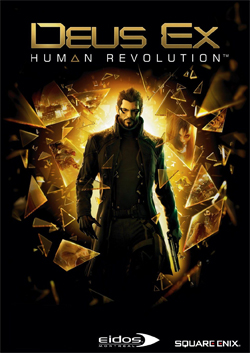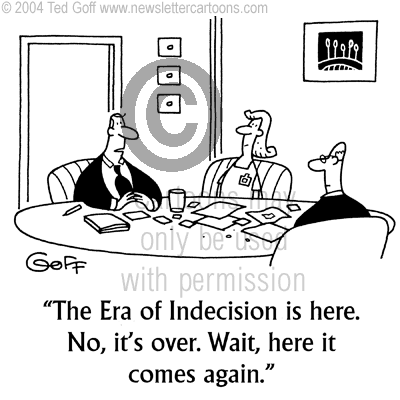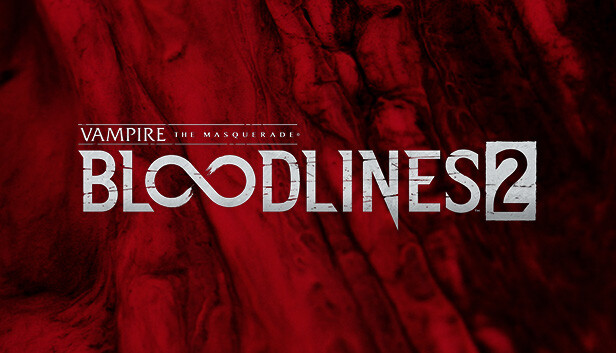This is the section on making a cyberpunk version of The World of Darkness. Timely, too, as Cyberpunk 2077 was released today.

I asked for this! People have been asking for some version of this for 30 years!
Pretty much since the very beginning there has been demand for a cyberpunk take on The World of Darkness. I’m not even sure how many times people have tried to make it work (depends on what you count as serious material of course), but this book represents at least one more attempt. The basic themes of Vampire the Masquerade – crime and pollution, transhumanism, loneliness and alienation, personal corruption and moral decay, enormous dark gothic cities that mix the present with the past, long black trench coats – make it a perfect fit for cyberpunk. Plus, in Vampire the characters explicitly live forever and you are constantly encouraged to think on very long time-scales in order to engage with the vampire politics. So if you ignore all the stuff about the looming apocalypse (which isn’t even a thing in nwod) it’s pretty reasonable for the characters to ask what the world of 50 years from now will look like.
Like, the entire party goes into torpor for 100 years, they wake up and the world has changed… how exactly? Are there off-world colonies? Entire cities built on nanotechnology? Insectoid robots? Cyborgs? The books never had any good answers on how you should handle it. The vast majority of the time they would just completely ignore the possibility. Both versions of the World of Darkness were drowning in setting material for playing historical games, but you had to subsist on crumbs if you wanted to do anything set even a decade into the future. We got a version of Werewolf: The Apocalypse set in the wild west before we got decent cyberpunk support. Absurd.
The real question is: does this section deliver anything useful for your own homebrew Cyberpunk/WOD crossover? The unfortunate answer is: “almost certainly no.”
We get two sample settings: “Tomorrow Country” and “Metalground.” Both are explained very badly as the information for each is spread out throughout the entire section for no reason. I think Tomorrow Country is supposed to be more low-key and realistic and Metalground is supposed to be more outlandish with open supernatural stuff, but I wouldn’t be willing to bet money on it. We also get some new merits that I think are recycled from Hunter: The Vigil to set up a kind of pseudo-class based system where you get bonuses to certain skills and a new morality system (“alienation”) that is supposed to represent morality for cyberpunk antiheros.
Then there’s the rules for transhuman augmentations (here called “plugins”). Augmentations are treated as merits, and the rules are shit. By default, an augmentation just gives bonus dice equal to the size of the merit to any two rolls of the players choosing. If the augmentation does something that is impossible for a normal human (like turning invisible) you are supposed to borrow the rules from any published nwod power. So for example turning invisible is the third dot of Obfuscate, so the merit cost is 3 dots and a hypothetical implant than turns you invisible works exactly like that power in terms of rules and modifiers.

A reasonable person might point out that turning invisible whenever you want is massively more useful than just getting +3 to Dexterity + Stealth, so it’s a dead giveaway that the system didn’t have much thought put into it, and really the whole thing is incredibly threadbare in the sense of “make something up, assign a point cost”. We don’t get any monetary costs, there’s no hard-limit on how many augmentations you can have, no discussion of how different supernaturals handle implants, etc. What really kills it for me though is that there’s this elaborate system where you have to roll willpower to use your implants and if you fail bad things happen to you. It is really REALLY easy to imagine scenarios where this makes no sense (like dermal armor) and the whole thing is a waste of space that slows the game down and fucks-over players that happen to roll badly. It’s complete bullshit, and I think whoever wrote the section must have hated the entire idea of players getting augmentations and wrote the rules to try and screw them over somehow.
Then we get to hacking. In the vast majority of cyberpunk games someone who can do nothing but hacking is still considered a valuable member of the team. In the nwod system, hacking is entirely handled by a single skill (Computer) and you can completely max that out at character creation. Back in 2004 the world didn’t even have smart phones, and with every real world year that passes the Computer skill gets more and more powerful. So how do they reconcile the nwod skill system with the vastly increased importance of computers and hacking in cyberpunk fiction compared to a modern-day setting?
Basically they don’t. We get one fucking paragraph where they recommend that you reskin the social and mental combat systems to represent hacking, which is such an absurd, shit, braindead idea that doesn’t even acknowledge the problem. We also get advice to treat corporate AI’s as spirits for most purposes, which is … a fairly good idea, but after completely fucking up the need for new hacking rules I’m not going to give them any credit. It’s a bit like if you went to Pizza Hut and you ordered a pizza and they gave you an empty box with no pizza, but they “made it up to you” by giving you extra napkins. You don’t get points for extras after you fucked up the main shit everyone was asking for.
So yes, the mythical cyberpunk World of Darkness that actually works is once again nowhere to be seen. My advice: just crack open GURPS or FATE, because by the time you wrangle the nwod system into usability the group will have lost interest. How the fuck they could have fallen down so badly on the two basic things people wanted for almost every cyberpunk setting (augmentations and decent hacking rules) is anyone’s guess. Seriously, those two sections are what most people were interested in and they got all of 2 pages out of 23. The rest is filled out with ruminations about old cyberpunk novels and some not-terribly-cyberpunk-specific mechanics that no one cared about.
What a waste.
Infinite Macabre
The section on doing space horror. Think something along the lines of the Alien movies or Event Horizon or maybe Firefly.

Hopefully it will at least turn out better than Jason X. But who knows.
We get some discussion on the genre of space opera as well as some rules for owning and using space ships, complete with the players being able to buy their own spaceships with merits. The space ship rules have a very “kludge-y” feel (The rules are for space ship chases are basically the rules for vehicle chases but re-skinned, there are linear costs for non-linear benefits, the fluff doesn’t always match up with the mechanics, etc.) but they are decently workable if no one tries to minimax the system or if you are willing to change some of the values: C+
We also get some pretty good fluff for how interstellar travel works: There are giant scary-looking stargates of unknown origin (“Stygian Gates”) that lead into hyperspace, but in order for a ship to remain in hyperspace, the hyperspace dimension (depicted as an evil dark dimension like the Warp from Warhammer) has to “feed” off of the willpower of the crew. Long-range FTL is therefore limited by the collective sanity of the crew, because if the journey goes on too long the crew goes insane and reality starts to break down. Fun mechanics and more flavorful than the standard “hyperdrive” excuse: A-
We then get a lot of discussion about how all the different nwod splats adapt to outer space. Most of the mini-section is a waste of time. The whole thing is basically the phrase “The World of darkness…… BUT IN SPACE!” repeated 100 times. Like we get descriptions of every single nwod group/faction but with a bunch of random space words (Nebula, Wormhole, Asteroid, etc.) sprinkled in. Like it’s Werewolf: The Forsaken……. but they’re on a space station! Mind blown! Except not really. We do get a few new mechanics for how different characters might adjust to outer space, some of which are actually interesting, but it is still too padded. We don’t even get basic rules for doing things in zero-gravity, which is an incredibly glaring oversight.
We also see the return of our old friend “entire paragraph full of questions” in several places:
You know. One or none or some combination of the above options. Whatever.A vampire’s vulnerability to sunlight is a supernatural one, not a biological one. So it’s up to you to determine the nature of a vampire’s aversion to sun or starlight. Is the vampire harmed only by the light of those stars orbited by habitable planets (tying it to the vibrancy of human life and how the sun sustains those naturally living and burns those who are unnaturally undead)? Is the vampire vulnerable to all starlight? Or, again, is it only the light of our own sun that burns the vampire? If a vampire is Embraced on a different planet—or moon, or stardock—is he burned by the sun in that system only?

We finish off with those rules I promised about making aliens. Specifically, a system for making alien PCs. How it works is that there are a bunch of merits in four sections: mental, physical, social, and cultural. You make your character as if they were a normal human and then you load up on alien merits using a (stupid) tier system. You can take a handful of optional alien flaws (“imperfections”) if you want more points, but by default aliens will end up more powerful than normal humans. So for example you can combine the traits Human-Seeming (•), Natural Armor(••), Lyrical Voice (•••), and Hive Mind (•••••) to create your own alien species.
It’s a great starting point, if a bit wobbly. The only really obviously overpowered merit is Non-Linear Thought Patterns (•••), which gives permanent 8-again to five different mental skills AND reduces the untrained penalty for those skills from -3 to -1, making it an absolute must-have for any mental focused character. But other than some balance issues the concept is solid with three example alien species given. And I’ll admit, I’ve always loved free-form point balancing schemes like these that let you make your own stuff. It’s all the accounting fun of chargen mixed with the primal artistic freedom of making shit up.
…Which is why it’s such a disappointment that there isn’t even close to enough content for it to really be playable. With only a handful of merits for each category, the designers all but admit in a sidebar that you’re going to have to make up your own content if you really want to use the system, and I completely agree. Which is a shame because the rules for aliens could very easily be extended to cover things like sewer mutants or completely unique fairy-tale monsters. If this system had gotten the entire 30 pages I would have been much happier. I would have been happier still if White Wolf hadn’t totally crashed and burned years ago, but you can’t have everything.
Otherwise yeah, the space section is better and more useful than the cyberpunk section, if you can believe that.
